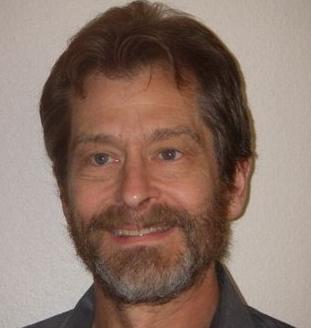An even more phenomenal example of collective group intelligence emerging from many independent intelligences is manifested in the hunt for a new home.
When the hive gets crowded, a contingent of bees hives off and assembles a ways from the main colony and"debates"candidate locations for a new daughter hive. Scouts fly out and return with information about potential nooks, crooks or crannies that are protected enough but spacious enough for a new home. This is a critical decision, for if the new location is inadequate, the hive will likely die. The debates in this apiary General Assembly resolve themselves within a few days and the choices are almost invariably excellent -- as Seeley explains. After 30 million years of evolution, direct democracy has emerged as the best means for group survival -- independent opinions considered, weighed and resolved democratically, WITHOUT A LEADER.
Interestingly, the brain is another natural system organized in the same fashion. There is no central command center, much as we imagine there to be. Where is"I"? There is"no here here". The intelligence of the whole is greater than any part. The loss of any part doesn't take down the whole. We make decisions based on a"voting"process among different impulses values and goals. Marvin Minsky, founder of MIT's Artificial Intelligence Lab, calls it"The Society of Mind".
There are lessons from nature here. Democracies are resilient and durable; hierarchies are unstable and short-lived. This is the wisdom and great strength of the Occupy movement.
* * *
So this is the natural state of humanity -- a network of small groups. Social media has re-enabled this ancient modality. When white men came to North America, the first question asked upon encountering a native tribal group was"who is your chief?"This was asked so many times that whenever the native communities saw white men approaching, they would designate a spokesman to be the"chief". But in fact, outside of times of war or crisis, the"chief"was just"one of the Indians". That is the normal mode of human existence: small egalitarian cooperative groups, collective decision making. It's the most successful model of human social organization and it's the model that the Occupy movement seems to have hit upon.
I've experienced this in the workplace, maybe you too. There is group cohesion up to a certain point, about tribe size, where decisions are made collaboratively, fluidly and efficiently. Beyond a certain point, the group breaks into subgroups, layers of management appear and those in the hierarchy lose touch and decisions become cumbersome and sometimes downright dumb. Hierarchies are good for narrow purposes but nature suggests that they are a dumb idea for a long term social arrangement.
* * *
In the last chapter of Seeley's Honeybee Democracy, he lays out in 5 points how the wisdom of honeybees can inform human group decision making. The first is that all parties coming to the table must share a common goal, be committed to the good of the group. Come to the table in good faith, as they say. We see a hideous counterexample in Congress today where one party is willing to destroy everything in order to"win"in the next general election. So not everyone comes to the table in good faith.
Therein lies the peril and challenge. There are plenty of greedy, sociopathic authoritarian characters in the top echelons of our society who would derail the Occupy movement, defame it, discredit it, misrepresent the message or worst of all, co-opt it.
So it's important for the public at large to understand at least the core significance of the Occupy movement. Taking a stab at it, I would say it this way. In the short run, Occupy is battling against corporate greed and a grossly unfair economic system. In the long run, it is presenting a model of egalitarian self governance as a critique of hierarchy.
The aim is not revolution but restoration -- restoration of community, of our founding democratic principles of fairplay, justice and equality. Even play-by-the-rules capitalism may have its place. But top-down power hierarchies are out.
Bottom line, the movement is toward a restoration of something dear to us all -- human community.
As long as those basics are understood by the public, the pundits and politicians will have a harder time misleading their audiences -- and the Occupy Movement will have a good chance of shifting our self-destructive socioeconomic paradigm to something more life affirming and sustainable. And generations to come will thank us.
Time will tell.
(Note: You can view every article as one long page if you sign up as an Advocate Member, or higher).





